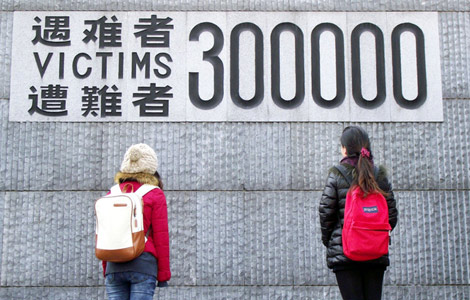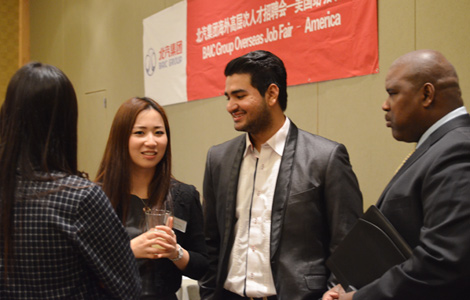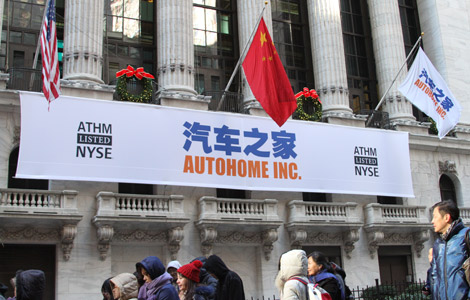More paid leave needed to meet travel demands
Updated: 2013-12-13 01:07
(Xinhua)
|
||||||||
Despite small changes, there will still be 11 days off for major holidays next year, the State Council, or China's Cabinet, said in a statement Wednesday.
Apart from the week-long (including a weekend and one moved weekend) Lunar New Year holiday, a traditional occasion for family reunions, there used to be another two long holidays, May Day and National Day.
The May Day holiday was shortened to three days in 2009. This left only one golden travel season, or National Day holiday, which results in traffic jams and crowded tourist sites. This has been a source of complaint for the public.
Many want the May Day holiday to be lengthened back to a week, as well as longer and better guaranteed paid leave to help ease the travel rush.
During the National Day holiday in the first week of October this year, tourist destinations reported 428 million visitors, generating a revenue of 223.3 billion yuan (36.8 billion U.S. dollars), official data showed.
"Excessive crowds during the travel rush shows the shortage of long vacations," said Liu Simin of the tourism researcher center under the Chinese Academy of Social Sciences. "It also comes as many are ineligible to paid leave due to labor law violations."
According to statistics from the National Holiday Office, people with ten years of service in 62 countries and regions it surveyed worldwide are eligible to 19 days paid leave on average. China offers just 10 days.
"It seems like an easy decision to extend the retirement age. Why is it so difficult to have more days off?" a netizen under the name of "BlizzardAlga" wrote on Sina Weibo, China's Twitter.
Meanwhile, workers in many low-cost factories have to work on some public holidays.
A worker surnamed Yang at a plant in the southern manufacturing hub of Guangdong said their boss only allowed employees to take vacations during traditional holidays, like Spring Festival and Tomb Sweeping Day. But on other public holidays they sometimes have to work.
Zhang Hui, head of the tourism department of Beijing Jiaotong University, said with expressways toll free during major holidays, the crowds are worse as many drivers take advantage of the government offer.
"The government should offer toll-free tickets to reward those who avert the major holidays to travel on other days," said Zhang.
Wang Qiyan, director of the leisure travel research center under Renmin University of China, said hundreds of millions of migrants and other people who work in cities want to travel back home a couple of times a year.
"One or even two golden week-long holidays can no longer meet the travel demand that has been rising with higher family earnings," Wang said.
Zhang said the number of visits a Chinese person makes a year on average is only one fifth of that in developed countries.
The tourism market wants more reasonable vacation arrangements.
Fewer longer holidays mean fewer longer trips, thus limiting the ability to boost domestic demand and the service sector, Zhang said.
Most Viewed
Editor's Picks

|

|

|

|

|

|
Today's Top News
Japan told to stop Diaoyu Islands provocation
NSA: surveillance best way to protect US
US and China not enemies, report says
NTSB holds Asiana 214 hearing
BAIC races to new goals
Lee named head of Patent Office
Explose bank loan rise may spark tightening of credit
'Containing China' Japan's strategy
US Weekly

|

|















